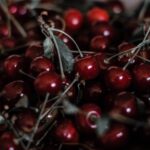By: Nicole Yurcaba

As violence against Asian Americans continues to rise in the United States, uplifting Asian American voices becomes an important mission for readers, reviewers, and publishers. Big house publishers like Penguin Random House have scoped out talent like Su Cho, whose collection The Symmetry of Fish has garnered much attention in the poetry realm. Much like Cho’s poetry, the poems in Stephanie Niu’s She Has Dreamt Again of Water capture the generational and cultural differences between parents born abroad and their children born in the States. In flowing, refreshing images and verses, the collection deftly and specifically captures the spaces a daughter creates and occupies within a family’s origin.
While the collection mostly utilizes direct, personal language and crisp free verse forms which make it easily accessible, it challenges readers to think beyond what they are given directly on the page. The best example of this is the poem “Midden / Appetite.” The poem opens with the rather shocking line “My mother calls herself our trash heap.” This single statement establishes the poem’s foundation, and it quickly transforms into a series of enjambed lines. While the speaker incorporates personal reflections, an archaeological explication about the importance of trash centers the poem. The speaker observes, “What better map, / to the way people lived than the things they discarded.” However, the poem isn’t simply an analysis of prehistoric and past trash heaps which provide glimpses into the everyday existence of one’s ancestors. It morphs into a poem about the female experience with aging and society’s attitudes about a female’s expendability:
My mother does not like the way she looks.
In the dressing room she pinches the flesh
around her face. If someone loved me more,
maybe I wouldn’t gain weight.
Subsequently, in a Caitlin Doughty-like manner, the speaker reflects about a dead whale’s decomposition process. Nonetheless, the speaker’s reflection isn’t merely a random interjection. If readers give the lines a close read, lines like “a world emerges to devour it” and “Hagfish come first” carry significant emotional weight and societal cultural commentary, especially if considered in the context of the latest criticisms of aging celebrities like Madonna.
Other poems like “Before Desire” are romantic, affection, and light in tone. As is typical of many of Niu’s poems, it relies on clinical enjambment. The enjambment creates the poem’s momentum:
When we were pelicans we lived in the air
and the sea, dipping to catch fishfor each other. Flight was nothing special.
We cleaned our wings. Sometimes the catchswam down and we dove with such force
that our bodies became blades through the water.
The structure reinforces words like “down” and “dove,” and the sudden punctuation not only abruptly stops readers; it also draws attention to words like “force.”
Similarly to the poems in Kien Lam’s Extinction Theory, “Dad Keeps Trying to Treat Our Parakeets Like Chickens” pays sentimental homage to the generational and cultural differences families often face due to experiential discrepancies. The speaker continually compares the father’s experience with the parakeets to his experience with the chickens he and others kept in the village. The speaker’s father feeds his children’s parakeets “raw dough” which “the village chickens / would have found delicious.” The poem also introduces the concept of privilege and food security which often produces conflict in families between generations. The speaker recollects how their father “ran his own experiments” in an effort to conquer his own hunger. They note, “I guess he learned / from a lifetime of studying how to keep the belly full.” They also offer wise anecdotes such as “The small joy of surviving must be / that it comes from nothing” — an assertion on the speaker’s part to understand the father’s mentality.
The chapbook’s eponymous poem is a tight, eight-stanza poem. This poem’s linguistic agility–again fueled by enjambment — contributes to its fluidity, which is only appropriate given that the poem alludes to Chang ‘E, a goddess from Chinese mythology. The poem is a quiet ode to the myths and legends which intrigue modern humans. Present in the poem is a Romanticism Niu’s other poems lack:
Sometimes, I wish I could be her–impossibly
distant, immortally distant, my escape
transformed into myth–I want people to look.
Niu’s allusion to Chang ‘E, who flew to the moon after swallowing an elixir of immortality (according to some versions of the myth), also nods toward the mythological renaissance literature has undergone in the past few years. The speaker presents a familiarity which suggests humans can use myths to understand their inner selves and their fallibilities, and it also asserts a quiet position about using genres like poetry to preserve and re-communicate any culture’s mythologies.
The chapbook concludes with the poems “Migration” and “I Drive While My Family Sleeps,” both of which examine the fleeting nature of place in one’s existence. However, these poems offer a conflicting dichotomy in that regard, suggesting in their language and imagery that even though one may move through a place quickly and temporarily, that place can unexplainably impact an individual for years to come.
She Has Dreamt Again of Water is a brief, quick read. However, readers shouldn’t let the chapbook’s brevity fool them. It’s that brevity which gives the chapbook its emotional tug similar to that cursory second on the shore when a wave hits one’s legs and pulls them deeper into the sea.
Nicole Yurcaba (Ukrainian: Нікола Юрцаба–Nikola Yurtsaba) is a Ukrainian (Hutsul/Lemko) American poet and essayist. Her poems and essays have appeared in The Atlanta Review, The Lindenwood Review, Whiskey Island, Raven Chronicles, West Trade Review, Appalachian Heritage, North of Oxford, and many other online and print journals. Nicole teaches poetry workshops for Southern New Hampshire University and is a guest book reviewer for Sage Cigarettes, Tupelo Quarterly, Colorado Review, and The Southern Review of Books.



Add your first comment to this post